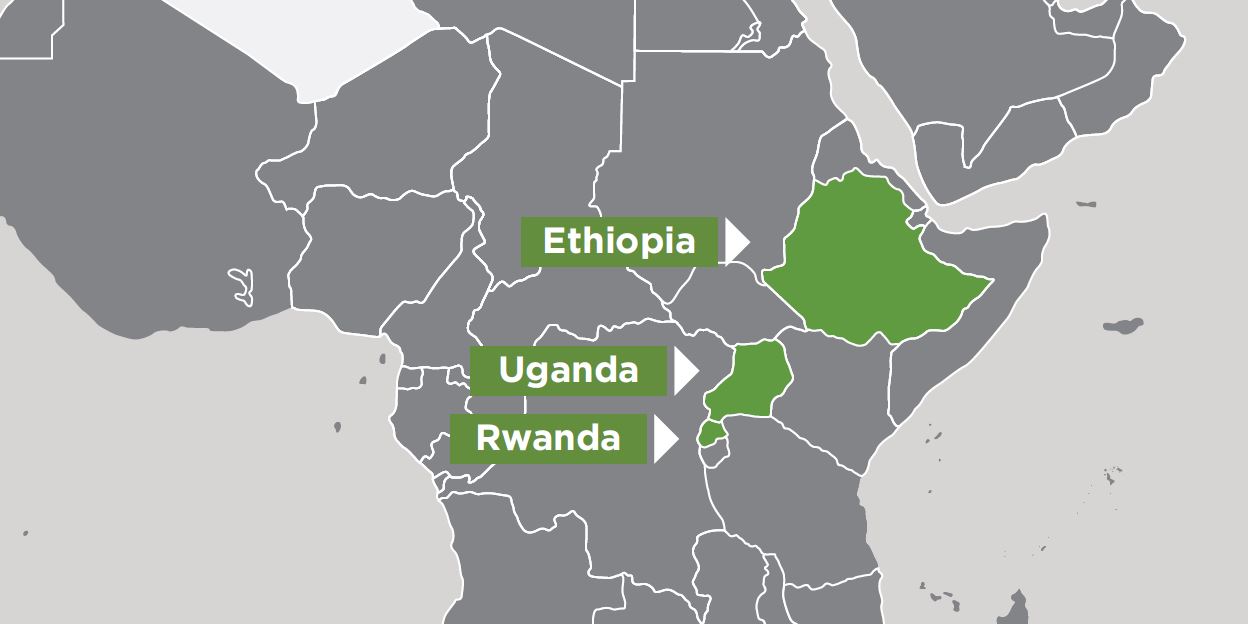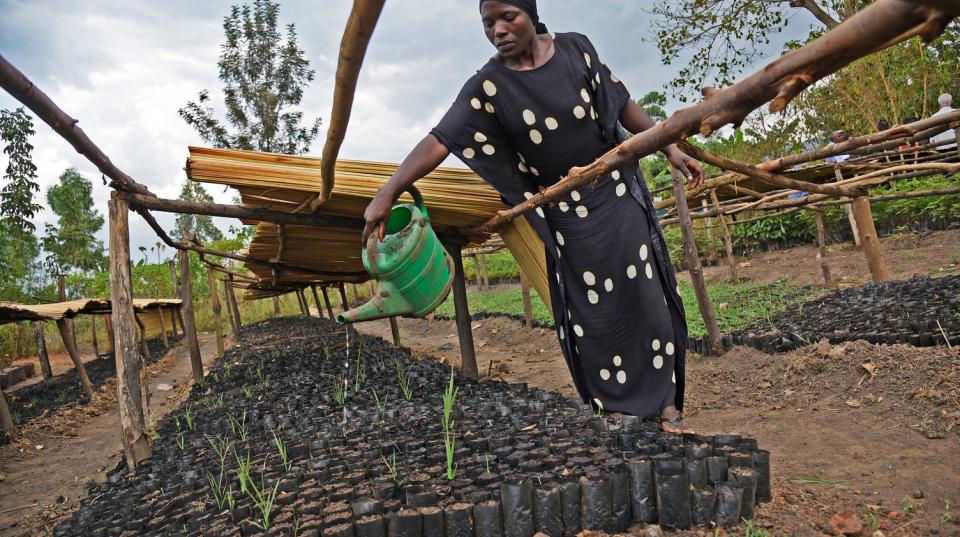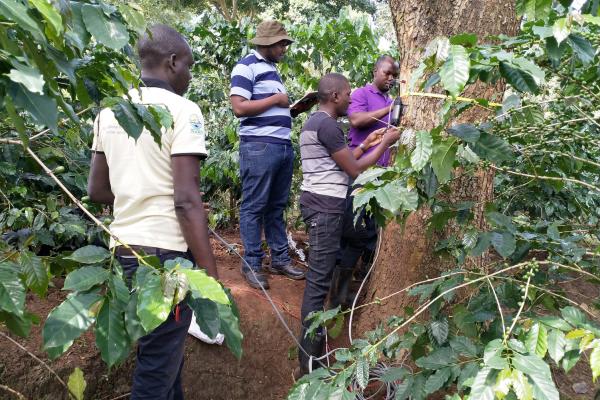Overview
This project aimed to improve food security and smallholder livelihoods through the adoption of locally adapted agroforestry systems in key landscapes in Ethiopia, Rwanda, and Uganda.
More than 10 million people in Ethiopia, Rwanda and Uganda depend on smallholder farming. Most rural households are resource-poor, food insecure and vulnerable to climate change, a situation exacerbated by rapid population growth, declining farm productivity, over-exploitation of trees in agricultural landscapes and deforestation.
While farmers want greater diversity of trees on their farms, adoption constraints include lack of access to appropriate knowledge, financing options and markets, limited water resources, free-range grazing and weak local institutions. This second phase of the ACIAR Trees for Food Security project (T4FS) built on the activities from phase one by focusing on tree diversity as the cornerstone of smallholder system intensification, and integrating tree management with value-chain development, better water management, and new approaches to govern livestock management.
Project outcomes
- Expanded capacity among various stakeholders, including researchers, farmers, businesses, extension personnel and staff and students in tertiary education, to apply the knowledge learned from the various agroforestry options, and facilitate business opportunities and commercialisation pathways.
- Benefited 30 million rural people in Ethiopia, Rwanda, and Uganda reliant on smallholder farming in the target agroecology, and ultimately relevant to the livelihoods of 110 million rural people in the three countries.
- Improved productivity and household income through uptake of locally adapted agroforestry options by 50,000 households, across 420 villages in three countries, impacting over 83,000 ha and the food security of 222,000 people.
- Improved business skills of 200 traders and businesses directly and 5,000 indirectly, of which at least 30 per cent are women.
- Trained around 5,000 students and extension professionals in modern agroforestry.
- Contributed to cumulative economic benefits to smallholders overtaking the AU$5 million investment at year four and reached AU$25 million four years beyond the project life, by which time 100,000 people would have achieved food security and 120,000 exited poverty.








